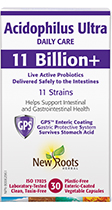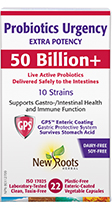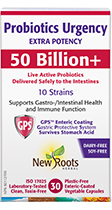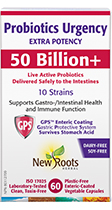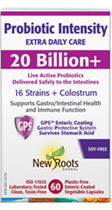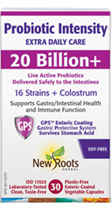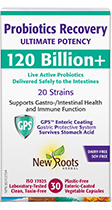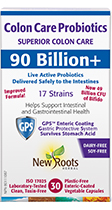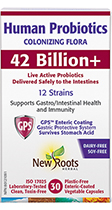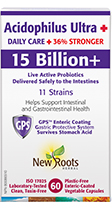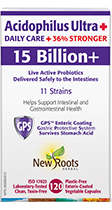Oh Poop—Stuck Again?
Are you feeling stuck again? Constipation can be difficult to live with and manage. In this article, I will be discussing some lifestyle factors and supplements to consider to support a healthy digestive system.
What Is Constipation?
Constipation is characterized by infrequent bowel movements, difficulty passing stools, or the passing of hard, dry stool. It happens when your colon absorbs too much water from the food in your digestive system, causing the stool to become dry and hard and therefore difficult to pass. The excessive retention of water can result in bloating, a common symptom among individuals with constipation. Additional indicators of constipation may include infrequent bowel movements (three or fewer per week), straining during bowel movements, the sensation of incomplete bowel emptying, abdominal discomfort, a feeling of fullness, and the presence of hard, small stools.
The Causes
There are a variety of reasons why you might be experiencing constipation.
- Inadequate dietary fibre in your diet
- Dehydration
- Lack of physical activity
- Medications: Some pain killers and antidepressants will have constipation as a side effect
- Pregnancy or other hormonal changes in women
- Medical conditions: Conditions like irritable bowel syndrome (IBS), thyroid disorders, and other medical conditions can lead to constipation
- Ignoring the urge to go: Over time, not listening to your body’s signals can lead to constipation
Having adequate fluid intake plays an important role against dehydration. When your body is dehydrated, it will absorb more water from the waste in your colon; this will create harder stools, making it more challenging to pass. Addressing dehydration is important; however, other factors need to be addressed to manage constipation. Regular physical activity promotes healthy bowel function. Aim for at least 30 minutes of moderate exercise most days of the week. It is also a good idea to establish a consistent routine for meals and bathroom breaks. Regularity in daily activities can help regulate bowel movements.
How Often Should You Poop?
I wish I had a solid answer for this, but unfortunately my answer is that it varies. The amount someone poops depends on their individual physiology, diet, physical activity, and overall lifestyle. For many, it can be normal to have a bowel movement after each meal, or once per day, or even 3–4 times per week.
Once per day tends to be the most common; however, what’s most important is to monitor for symptoms. For example, you might not go daily, but if you aren’t experiencing any constipation symptoms then you likely aren’t constipated.
What About Fibre: Can That Help?
To help alleviate or prevent constipation, it is important to eat foods rich in fibre. Fibre can help soften stools, making them easier to pass. There are two types of fibre—soluble and insoluble—and each influences your digestive system differently.
Soluble Fibre |
Insoluble Fibre |
|
Dissolves in water to form a gel like substance in your digestive tract. |
Does not dissolve in water and remains mainly intact as it moves through the digestive system. |
|
Helps to soften and bulk up stool making it easier to pass. |
It adds bulk to your stool which can help prevent and relieve constipation by promoting regular bowel movements. |
|
Slows digestion and absorption of nutrients in the small intestine. This can stabilize blood sugars, promote fullness, and help to manage appetite. |
Speeds digestion. Insoluble fibre moves through the digestive tract quickly. |
|
Is a prebiotic, which means it nourishes and feeds your gut bacteria. This helps keep your digestive system healthy. |
Because of its fast movement through your system, it can help “clean” out your intestines. |
|
Some soluble fibres help reduce LDL “bad” cholesterol. |
It has no caloric value, as it passes through your system without being absorbed. |
Foods Rich in Soluble Fibre |
Foods Rich in Insoluble Fibre |
|
Oats |
Whole grains |
|
Legumes |
Vegetables (broccoli, cauliflower, dark leafy greens, celery, cabbage) |
|
Fruits (apples, berries, prunes) |
Fruits with the skin on (apples, blueberries, pears, grapes) |
|
Nuts and seeds |
Nuts and seeds |
|
Sweet potatoes |
Corn |
|
Brussel sprouts |
Wheat bran |
|
Carrots |
Avocado |
|
Barley |
Note: Some foods provide both insoluble and soluble fibre |
|
Psyllium husk |
|
Women need 25 grams of fibre per day, while men need 38 grams of fibre per day.
Fibre should come from a variety of sources. If you are dealing with constipation, incorporating daily fibre into your diet and maintaining proper hydration are crucial initial measures to help address this issue.
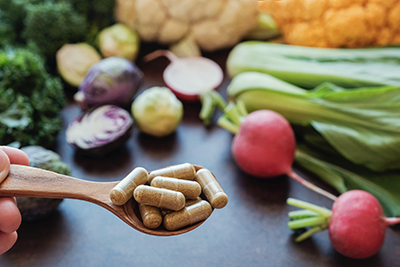 Can Supplements Also Help Reduce or Prevent Constipation?
Can Supplements Also Help Reduce or Prevent Constipation?
- If your diet is lacking in fibre, you might consider a fibre supplement. Psyllium husks is a fibre that can be purchased as a powder (to add to smoothies, cereal, oatmeal, or yogurt) or in the form of capsules. It can help soften stools, increase bulk, and help move waste through your digestive tract.
- Magnesium citrate acts as an osmotic laxative, drawing water into the intestines and softening stool: This can help alleviate constipation. Be cautious of the amount you take because it can also cause diarrhea if you take too much.
- Herbal supplements. Several different teas can be considered to help alleviate symptoms of constipation.
- Peppermint tea can help relax the muscles of the digestive tract, which may relieve gas and help with abdominal pain.
- Ginger tea has been traditionally used to support digestion and offer relief.
- Dandelion root tea acts as a mild laxative and diuretic. This can potentially help with constipation and bloating.
- Fennel tea can relax the digestive tract and reduce bloating.
- Senna tea is an herbal laxative that can be used to relief constipation. This tea should be used with extreme caution and short term; prolonged use will lead to dependence.
- Probiotics have beneficial bacteria that can help regulate your gut microbiome and promote a healthy digestive system. Make sure you take one that requires refrigeration and is enteric-coated, which simply means it is encapsulated with a protective barrier to not degrade as it passes through stomach acid on its way to the intestines.
Although supplements and herbal remedies might provide some temporary support and relief, it is important to remember that they are not addressing the root or underlying cause of your constipation. If you have been experiencing regular constipation, I highly recommend seeing your health-care practitioner to have your situation evaluated and have a treatment plan created that meets your individual needs.
 Angela Wallace, MSc, RD
Angela Wallace, MSc, RD
A registered dietitian with the College of Dietitians of Ontario, personal trainer, and family food expert who specializes in women and child nutrition and fitness, she loves helping families get healthy together.
eatrightfeelright.ca

 Stores
Stores
